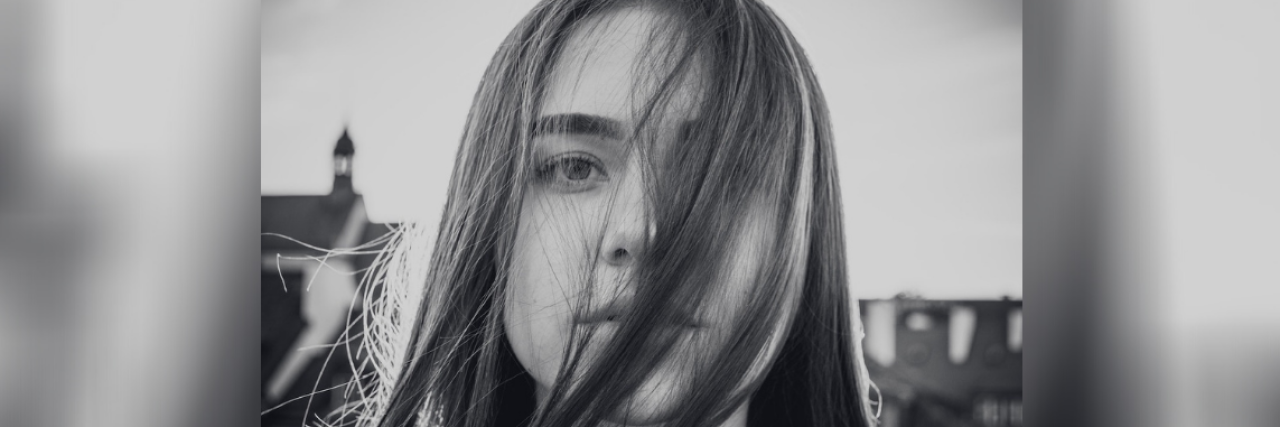I’ve struggled with general anxiety disorder my entire life. Some of my strongest childhood memories I have are of being frightened. I would hear about something — like tornados or volcanos or asteroids — and become convinced that thing was my fate. I struggled to sleep and was often plagued by nightmares.
As an adult I feel like I’m in a constant, exhausting battle to be in charge of my brain and mitigate the racing thoughts. I want all of you to know this article is written from a place of experience — not of judgment. Please know that what I want to say today is in no way intended to replace medical advice. If you are struggling with anxiety or depression please seek help from professionals. I have — many times.
I have spent the last five years working on learning to manage my anxiety better. This has included reading many books, learning to practice mindfulness, regular therapy for several years, managing my other medical conditions better and using some medication with the guidance of a psychiatrist.
As I watched the COVID-19 crisis unfold worldwide it felt like the entire world was having a panic attack — granted one that perhaps was justified. Anxiety for me has always stemmed from fear of the unknown and so little was known at first about this new disease. The natural response was to be frightened. But for me I had this thought: “I’ve been mentally training for this for five years.”
That isn’t to say I’ve always handled the stress of this pandemic with poise and grace. I have had several days where I have felt unbelievably frightened. But for the most part that fear has not ruled my life the last six months. I wanted to share some ideas that may help those of you who have days or hours of extreme fear in light of the current global situation.
1. Learn to ride the elephant.
There is a popular analogy out there of how to think about our brain. Our rational, logical self is the rider and our emotional brain is the elephant. Often in anxiety the elephant takes over before the rider can do much of anything. Once the elephant is out of control, it’s very difficult to reign it back in. Over the last 12 months I have been practicing labeling an anxious thought and visualizing myself as the rider staying in control of the elephant rather than allowing it to control me. It is simple, and maybe a bit silly, but it is also effective.
As soon as I hear a scary statistic about COVID-19 or a scary prediction, my elephant wants to stampede! COVID talk is very triggering for me. But it is also part of our current world and as much as I’d like to avoid it, I can’t help hearing about it from time to time. I have had moments I am not proud of where I have said something mean or hurtful to someone during this pandemic because my emotional brain has completely overtaken my logical one. My anxiety often manifests with anger. The last few weeks I have worked hard to visualize myself riding the elephant. It doesn’t mean I’m not frightened sometimes, but it does allow me to stay in charge of my emotional response.
2. Find ways to serve others
One of the best ways to help our mental health is to get outside of ourselves. I have found over the last five years that the more I look outward and try to help others the better I feel. Compassion is a powerful emotion and helps me to temporarily find relief from anxiety.
Serving during COVID-19 has often felt impossible. I have several friends and family members who are isolated because they themselves are high risk or members of their family are. All I have wanted to do is give hugs, make meals, help clean their homes or help babysit their young children. Being limited in the way we can serve others shouldn’t stop us from trying.
Right now what most of us need is more human connection. In the age of social media it is easy to forget that we all benefit from one on one, personal connection. A text, a phone call, a social distanced visit or a small gift are all ways we can show that we care and are thinking of others. Take the time every day to get outside of yourself and think of your circle and who might be needing a conversation or encouraging words that day.
There are also many service opportunities that can be done remotely for community causes. Ask around — if you start looking you will find meaningful ways to help
3. Learn more about meditation and mindfulness.
I had one therapist talk to me about how meditation is helping your brain tap in to the “calm” response we all naturally had as infants when someone would respond to our needs. This is an area I could be better at. I am a very busy mom of three little ones and taking time out of my day to meditate feels difficult (plus how do you meditate with a 3-year-old using you as a jungle gym?!). But 20 minutes a day of meditation can help you feel more emotionally centered. When I am having a particularly bad day I always make sure to stop and find a way to meditate. Sometimes this means I’m sitting in my car so I’m away from the noise and chaos in my home.
In addition to meditation, mindfulness is perhaps the most helpful tool in my anxiety toolbox. Mindfulness is the ability to stay present focused. I have spent months frightened that I’ll get COVID and then the worst will happen. I’ve had to remind myself over and over to stay focused on the present moment. When I’m reading a book to my youngest child I’m trying to make sure that I am 100 percent focused on reading that book. When we are going on a family walk — I try to take in the whole experience with all of my senses and be fully present in that moment. This has given me temporary relief from fear over and over again throughout my day.
4. Change your outlook
Earlier this summer I read “The Splendid and the Vile” by Erik Larsen. The book is about Winston Churchill during the blitz in London. Regardless of how you feel about Churchill, it can’t be denied that he had an incredible outlook on the war. He was not going to surrender or accept defeat — no matter how dire the situation looked. I have often had the thought that the world would look very different today if Churchill hadn’t known how to mentally stand strong. I later learned that in his underground war room he had this quote on the wall from Queen Victoria:
“Please understand there is no depression in this house and we are not interested in the possibilities of defeat, they do not exist.”
I wrote this quote on a notecard and placed it on my fridge. Every time I hear something frightening about COVID I remind myself of the scientists and medical professionals who are “not interested in the possibilities of defeat.” We have conquered much as a human race and we will conquer this too.
I also try to think back on my life — how I’ve managed many difficult situations and haven’t given up or given in. All of you are stronger than you think. If you take the time to look back at your life you will see just how strong you really are. We are a community of the Mighty. We are fighters. We are not interested in the possibility of defeat. We can stand strong in the face of our fears. Don’t give up. Don’t give in. Keep being the incredible people you are. We will win this fight.
Photo by Andriyko Podilnyk on Unsplash


